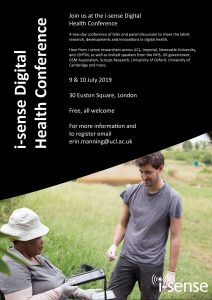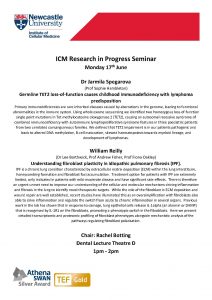28 August 2019, 1pm
NIHR / MRC Efficacy and Mechanism Evaluation (EME)
- 19/61 Mitigation of the adverse effects of health and social care interventions
https://www.nihr.ac.uk/funding-and-support/funding-opportunities/1961-mitigation-of-the-adverse-effects-of-health-and-social-care-interventions/11566
Applications are sought for research to evaluate interventions for the avoidance, management or amelioration of adverse effects experienced in the implementation of established health and social care interventions. Adverse effects associated with all types of intervention within the NHS and social care services, including adverse drug reactions, adverse surgical events and adverse effects of medical testing procedures are included within the remit of this call.
Areas of interest include, but are not limited to:
- Novel interventions to reduce adverse effects (e.g. to stop misprescribing)
- Novel interventions to identify patients at increased risk of adverse effects
- Studies to stratify patients to an established treatment that has very severe adverse effects
- Development of health technologies which promise an improved safety profile.
- Additive interventions which may improve the safety profile of existing technologies
- Pharmacogenomic strategies to mitigate the risks of exaggerated or diminished drug responses.
https://www.nihr.ac.uk/funding-and-support/funding-opportunities/1962-epigenetics/11667
Applications are sought for research to evaluate the use of epigenetic biomarkers for the detection, diagnosis, or establishing the prognosis of a disease or condition.
Areas of interest include, but are not limited to:
- evaluations of therapies and management strategies guided by assessment of epigenetic markers for the treatment of disease
- the use of epigenetic markers as a screening tool in a selected or general population
Clinical validation of existing biomarkers (i.e. studies of biomarkers that have already undergone initial validation and shown signal strength and specificity) is within the scope of this call but early validation and the discovery of novel biomarkers is excluded.
Applicants may wish to consider the role of epigenetic biomarkers within the context of a P4 (predictive, preventative, personalized and participatory) systems medicine approachi.
Applications for phase 2b studies of modest size and cost are encouraged.
Applicants are encouraged to consider opportunities to embed the testing of mechanistic hypotheses within the main study. Also of interest are standalone studies of the mechanisms underpinning interventions (investigational or control) used in existing CSO- and NIHR-funded trials, although applications in this area should refer to the EME Mechanisms of Action of Healthcare Interventions call.
Applications are expected to set out programmes of work which may contain distinct stages. It is expected that the initial stages of the study will, if successful, lead onto a full evaluative clinical study or trial, which is in the remit of the EME Programme. This study must also be included and clearly specified within the application. Clinical trials embedded within the programme of work must be large enough to detect a meaningful effect.
Webinars to support applications to the following funding opportunities:
- 19/21 Mechanisms of Action of Health Interventions
- 19/22 EME Tobacco Cessation, Control and Harm Reduction Interventions
- 19/23 Cannabis-based products for medicinal use
- 19/24 EME Researcher Led (including Brain Tumour highlight notice)
- 19/61 Mitigation of the adverse effects of health and social care interventions
- 19/62 Epigenetics
- Monday 3 June 2019: Time 10:00 am –11:00 am
- Monday 10 June 2019: Time 2:00 pm –3:00 pm
To register your interest in attending, please complete the webinar sign-up form:
https://www.nihr.ac.uk/funding-and-support/funding-for-research-studies/funding-programmes/efficacy-and-mechanism-evaluation/eme-webinar-signup.htm


